How Often Should Compost Be Watered? Essential Tips for Perfect Moisture Levels
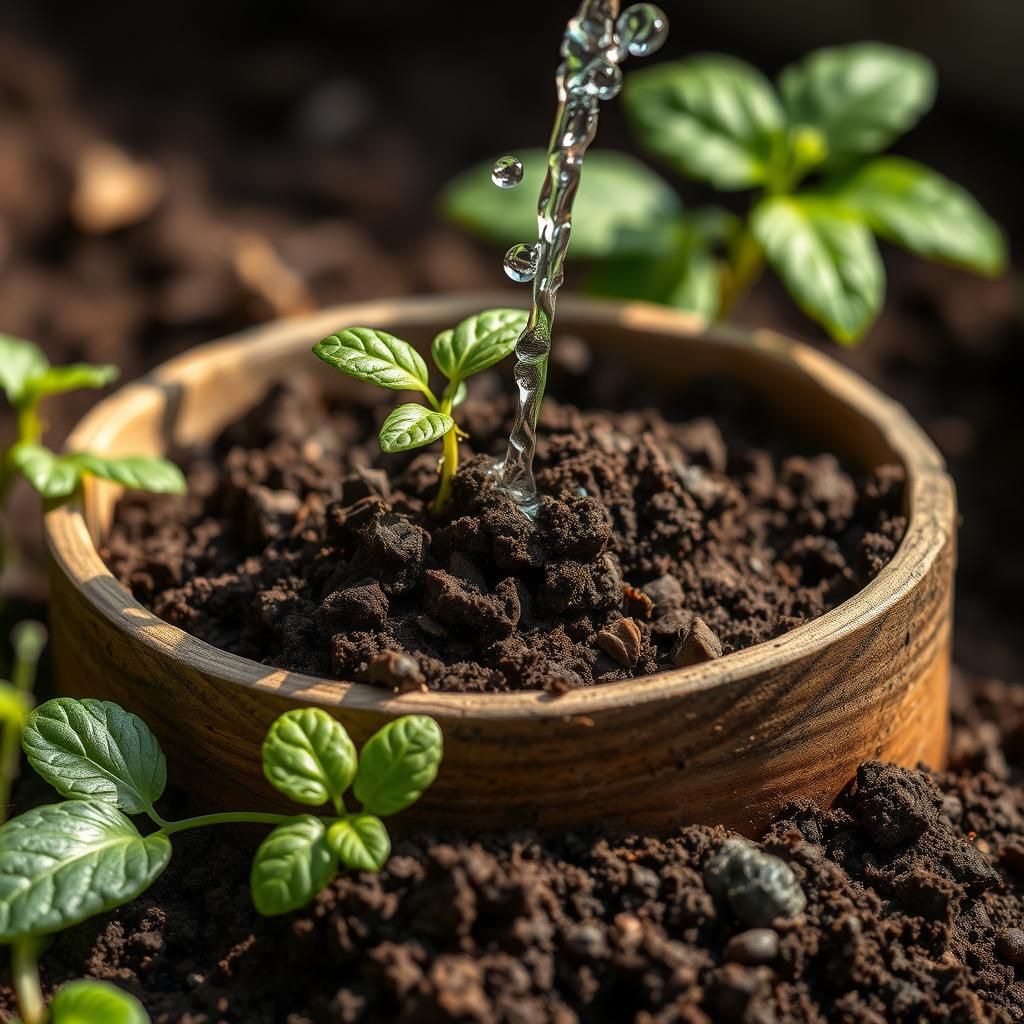
Understanding how often to water your compost is crucial for maintaining optimal moisture levels and ensuring effective decomposition. Proper moisture not only supports the breakdown of organic materials but also fosters the beneficial microorganisms essential for a healthy compost pile. Too much water can lead to anaerobic conditions, while too little can slow down the composting process significantly. This article will provide essential tips on determining the right watering frequency, helping you achieve that perfect balance. By following these guidelines, you can enhance your composting efforts and ultimately create nutrient-rich soil for your garden.
How Often Should Compost Be Watered?
To maintain optimal moisture levels in your compost, it’s crucial to assess it regularly; compost should generally be watered once a week or as needed, depending on the climate and conditions. Ideal compost should be damp but not waterlogged, resembling the texture of a wrung-out sponge. In hot, dry weather, more frequent watering may be necessary, while cooler, humid conditions may require less. Regularly checking the moisture level will ensure that the microorganisms responsible for decomposition remain active and effective.
Signs That Your Compost Needs Water
You can determine if your compost needs water by observing several key indicators. If the compost feels particularly dry to the touch or if you notice an odor, that typically signifies it is lacking moisture. Additionally, if you see that the compost has become too crumbly and is no longer maintaining a cohesive structure, it is time to add some water. Dark, moist clumps that easily fall apart when squeezed are ideal, so keep an eye out for changes in texture and smell.
How to Water Your Compost
When watering your compost, it's crucial to distribute the water evenly to ensure all materials receive moisture. You can use a garden hose, watering can, or even a sprinkler for larger compost piles. It’s advisable to sprinkle water gently rather than pour it heavily, as this can lead to compaction of the materials. Aim for a slow, steady stream to promote absorption, ensuring that the moisture penetrates all layers of the compost without creating pools of water on the surface.
The Role of Climate in Compost Moisture
The climate in your region plays a significant role in how often compost should be watered. In arid climates, evaporation rates are higher, making it necessary to check your compost more frequently and add water more often. Similarly, during hot summer months, compost may dry out faster, requiring increased attention. Conversely, in rainy or humid environments, less frequent watering is often needed, as natural precipitation may keep the compost adequately moist. Adjust your watering schedule according to the weather patterns around you.
Balancing Moisture and Aeration
When maintaining compost, it’s essential to balance moisture with adequate aeration. Too much water can lead to a soggy mess and create anaerobic conditions, which stifle the microbial activity critical to the decomposition process. To manage this, periodically turn or aerate the compost while monitoring water levels. This practice not only maintains even moisture but also encourages flow of air, helping to keep the compost healthy and active.
Frequency for Different Compost Types
The type of compost you're working with can also influence the frequency of watering. For hot composting, which involves maintaining a higher internal temperature through active heat generation, moisture should be checked more frequently due to the rapid breakdown of materials. In contrast, cold composting, which involves a slower process, may require longer intervals between waterings. Understanding the method you use will help you adjust your watering routine appropriately, ensuring the compost achieves its intended purpose effectively.
| Climate Type | Watering Frequency |
|---|---|
| Dry | Every 3-5 days |
| Moderate | Once a week |
| Humid/Rainy | Every 10-14 days |
Should you water compost daily?
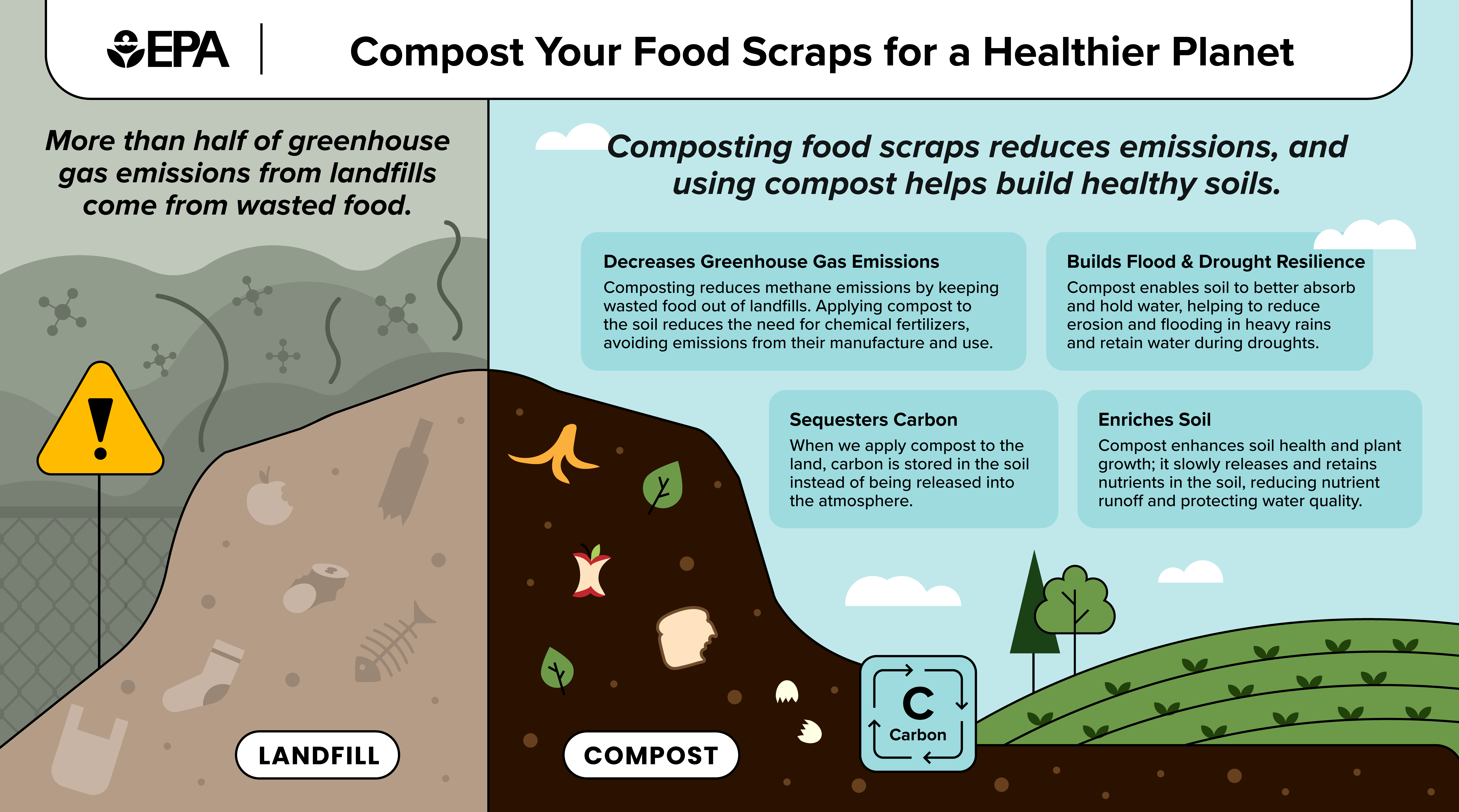
Watering compost is an essential aspect of the composting process, but it should not be done daily. The frequency and amount of water needed depend on various factors such as the materials used in the compost, the climate, and the moisture level of the compost pile or bin. Compost needs to be moist but not saturated, as too much water can lead to anaerobic conditions that produce foul smells and slow down decomposition.
Understanding Compost Moisture Levels
Maintaining the right moisture level in compost is crucial for effective decomposition. Compost should feel like a sponge that is damp but not dripping wet.
- The ideal moisture content is around 40-60%.
- Too dry compost can slow down microbial activity, while overly wet compost can create an anaerobic environment.
- Regularly check the moisture by squeezing a handful; it should hold its shape without releasing too much water.
Signs Your Compost Needs Watering
Identifying when to water your compost is important to keep it healthy.
- If the pile is crumbling and dry when you turn it, it likely needs more moisture.
- The compost may have a dusty appearance or produce dust clouds when moved.
- Microbial activity can slow down, indicated by a lack of heat or the visible presence of organisms.
How to Water Compost Properly
When you determine it's time to water, it’s important to do it correctly to avoid over-saturation.
- Use a soaker hose or watering can to apply water slowly and evenly across the compost.
- Water in small amounts, allowing it to soak in before adding more.
- Monitor the moisture level continuously after watering to prevent overwatering.
Impact of Weather on Compost Watering
The environment can greatly affect how much water your compost pile needs.
See also:
- In hot climates, compost may require more frequent watering to maintain moisture levels.
- In rainy or humid environments, there might be less need to water your compost.
- Seasonal changes also influence moisture, with summer generally increasing evaporation rates.
Benefits of Properly Watered Compost
Maintaining correct moisture in your compost provides several benefits.
- Promotes healthy microbial activity, which is essential for breaking down organic matter.
- Ensures a faster decomposition process, allowing you to produce compost more quickly.
- Helps to prevent issues like odor and pests that can arise from improper composting conditions.
How to tell if compost needs water?
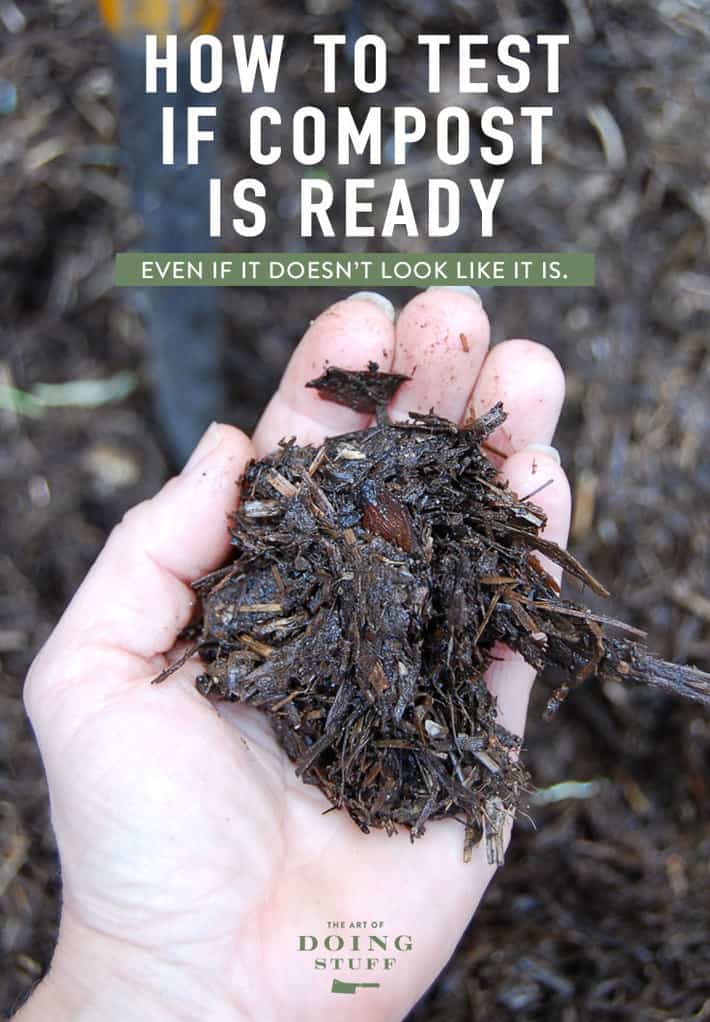
To determine whether your compost needs water, there are several indicators to consider. Proper moisture levels are crucial for the composting process as they ensure that microorganisms have the right conditions to break down organic matter effectively. Here are some signs that can help you identify if your compost is too dry and requires watering.
Check the Texture of Your Compost
The texture of your compost can give you valuable insight into its moisture content. When you touch your compost, it should feel damp to the touch but not soggy.
- If it feels dry and crumbles easily between your fingers, it likely needs more water.
- Conversely, if it feels muddy or slimy, it may be too wet.
- Strive for a consistency resembling a wrung-out sponge, which is ideal for healthy composting.
Observe the Color Changes
The color of your compost can also indicate its moisture level. Healthy compost typically has a rich, dark brown hue.
- If the compost appears light in color or has a dusty appearance, this can indicate lower moisture content.
- A dark and shiny appearance might suggest adequate moisture.
- Watch for uneven color in different sections of the pile, as this can point to irregular moisture distribution.
Monitor Temperature Changes
Temperature is another crucial factor in composting. A well-balanced compost pile typically generates heat due to microbial activity.
- If your compost pile is cooler than normal, it may signal that the moisture content is too low to support microbial activity.
- A moisture-rich pile should ideally maintain a temperature between 130°F to 160°F (54°C to 71°C).
- Use a compost thermometer for accurate readings, and compare the temperatures over time.
Check for Odor Issues
The odor coming from your compost can also provide clues about its moisture level.
- Healthy compost has a earthy smell; if it smells off or like ammonia, this could indicate that it is too dry.
- When it is too dry, the lack of moisture can hinder microbial function, leading to unpleasant odors.
- A little water might help revive the microbial community and return the compost to a more balanced state.
Inspect the Rate of Decomposition
The rate at which your compost breaks down provides insights into its overall health and moisture level.
- If you notice that the material is breaking down slowly, it may indicate insufficient moisture.
- Compost that is too wet may also break down slowly due to poor aeration; finding a balance is key.
- Keep an eye on the carbon to nitrogen ratio, as it can also affect decomposition rates and moisture management.
How often should I pee on my compost pile?
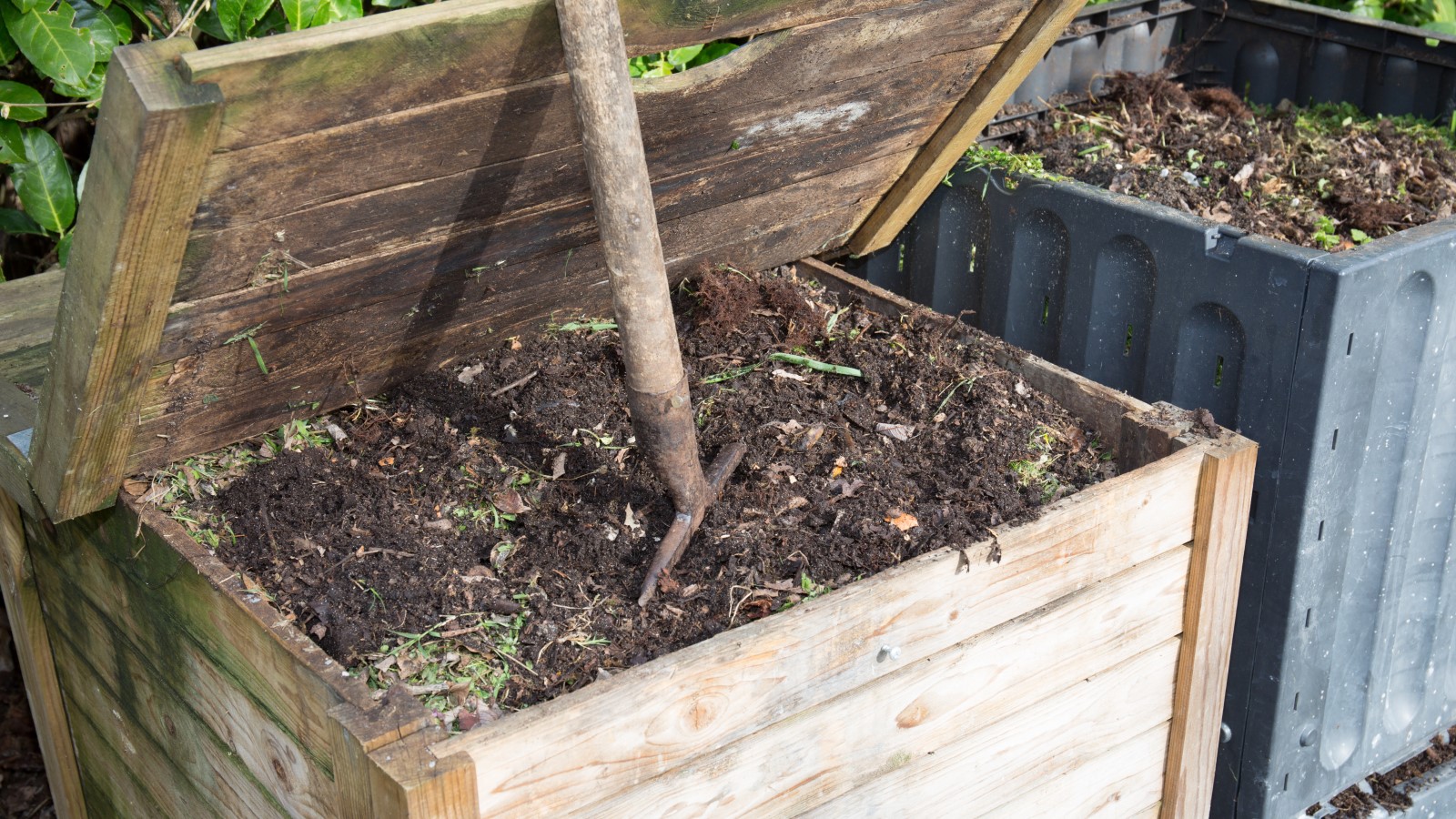
Peeing on your compost pile can be a beneficial practice, mainly due to the richness of nitrogen in urine. However, it is important to consider the frequency and method to ensure your compost remains effective and does not produce unwanted odors. Generally, it is recommended to add urine to your compost pile once a week. This frequency allows for an adequate nitrogen boost without overwhelming the carbon-rich materials on the pile.
Why is Urine Beneficial for Compost?
Urine is a natural source of nutrients, particularly nitrogen, which is essential for the composting process. Incorporating urine into your compost pile can help:
- Increase microbial activity, accelerating the decomposition process.
- Enhance the nutrient content of the finished compost.
- Balance the carbon-to-nitrogen ratio, which is critical for effective composting.
How to Collect and Apply Urine?
Collecting urine for composting is simple and can be done in a sanitary manner. Here are some tips for collection and application:
- Use a clean container for collection to prevent contamination.
- Consider diluting the urine with water (approximately 1 part urine to 10 parts water) to avoid nitrogen overload.
- Pour the urine evenly over the compost pile to ensure even distribution and minimize odor.
Signs You Need to Adjust Urine Frequency
While weekly applications of urine can be effective, certain signs may indicate the need to adjust the frequency:
See also: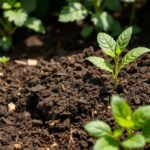
- If your compost pile has a strong ammonia smell, it may indicate too much nitrogen.
- If the pile is too dry, you might need to add more moisture, including urine.
- When the composting process seems to slow down, adding urine could help re-energize it.
Alternatives to Using Urine in Compost
If you prefer not to use urine, or if it's not feasible, consider these alternatives to add nitrogen to your compost pile:
- Incorporate green materials, such as kitchen scraps or grass clippings.
- Add manure from herbivorous animals like cows or chickens, which is rich in nitrogen.
- Use commercial nitrogen-rich compost activators that are available in gardening stores.
Precautions When Using Urine
Using urine in compost can be beneficial, but some precautions should be taken to ensure safety and effectiveness:
- Ensure that the urine comes from healthy individuals to avoid pathogens.
- Avoid using urine from individuals who are taking medications, as this may affect compost quality.
- Monitor the compost pile regularly to prevent any issues related to excessive nitrogen or odor.
Should you water after putting down compost?
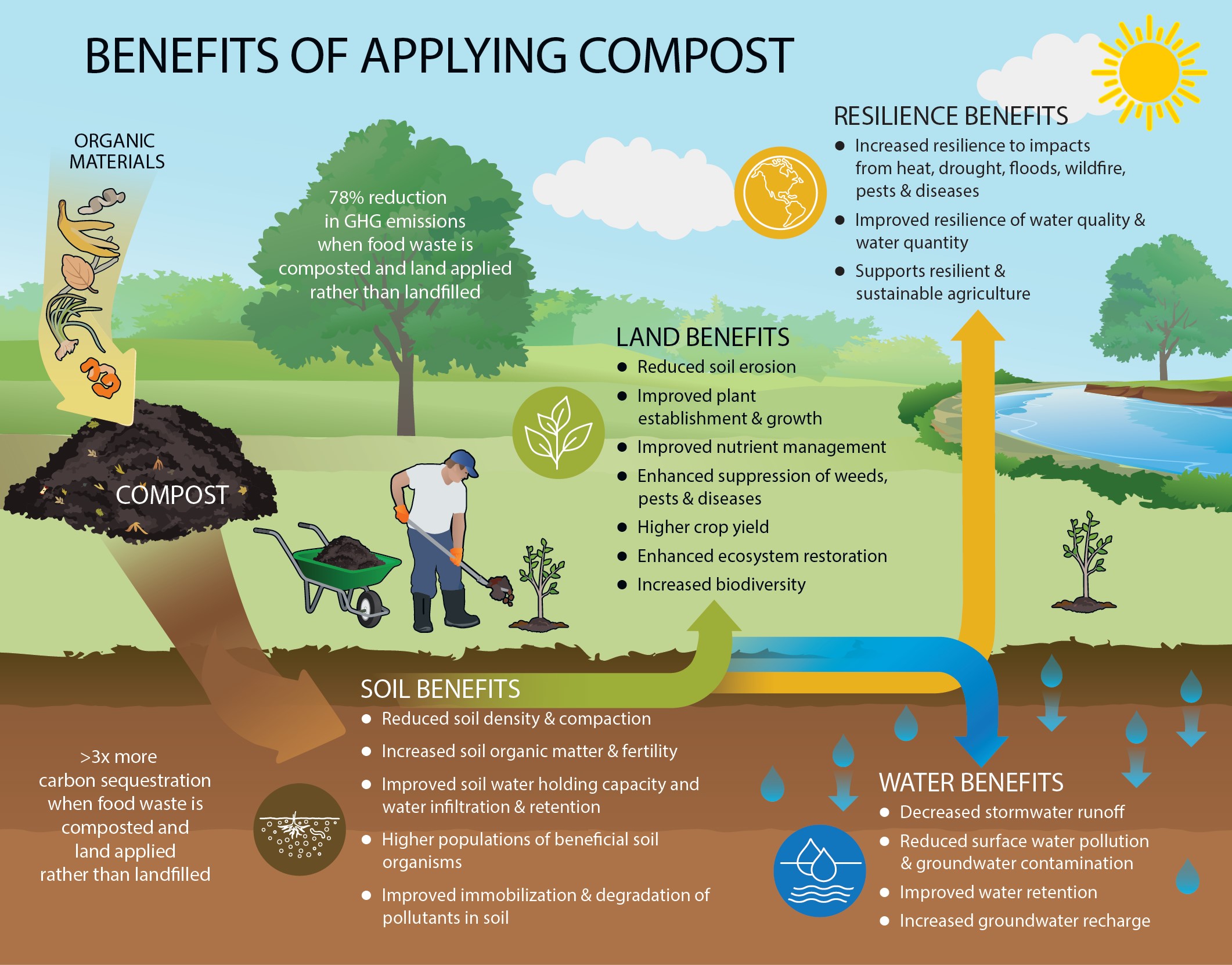
When applying compost to your garden or landscape, the question of whether to water afterward often arises. The general recommendation is to water your compost application, but there are specific nuances to consider.
Reasons to Water After Applying Compost
Watering after you have put down compost can benefit your soil and plants in several ways:
- Activation of Nutrients: Water helps to activate the nutrients within the compost, making them more readily available to the plants. Moisture helps facilitate chemical reactions that convert composted organic matter into usable nutrients.
- Improved Soil Structure: Watering helps to ensure that the compost integrates better with the existing soil. This can improve soil texture and moisture retention, promoting healthy root growth.
- Microbial Activity: Compost contains beneficial microorganisms that enhance soil fertility. Watering provides the necessary moisture for these microorganisms to thrive and work effectively in breaking down organic matter.
- Prevention of Compaction: If compost is applied dry, heavy rainfall can wash it away or compact it into clumps. Watering gently helps to settle the compost and prevent these issues.
- Initial Moisture Level: If your compost was dry when applied, watering ensures it is adequately moistened. Dry compost may not provide the intended benefits until rehydrated.
Amount of Water Needed
Determining the amount of water to use after compost application is crucial. You do not want to flood the area, but a thorough watering is necessary.
- Light Moisture: Aim for a light watering that moistens the top layer of soil and compost. This can range from 1/4 to 1/2 inch of water.
- Consistency Check: Use your fingers to check soil moisture. The compost should feel damp and not saturated.
- Time of Day: Water in the early morning to prevent evaporation. This allows plants to absorb the moisture throughout the day.
Conditions Affecting Watering Needs
Several conditions can influence whether or not you should water after applying compost, including:
- Soil Moisture Levels: If the soil is already moist from previous rain, additional watering may not be necessary.
- Weather Conditions: In dry and hot climates, watering is especially important after compost application to prevent the compost from dehydrating.
- Plant Needs: Newly transplanted or established plants may require additional moisture to thrive, influencing your watering decisions.
Alternatives to Watering
If watering is not an option, other methods can help integrate compost without using water:
- Spreading Techniques: Work the compost into the soil to enhance contact between the compost and soil particles, which can promote nutrient absorption.
- Mulching: Apply a layer of mulch on top of the compost to retain moisture and reduce evaporation.
- Timing: Consider applying compost just before a forecasted rain to leverage natural watering.
Frequency of Watering After Compost Application
The frequency of watering after applying compost depends on various factors, such as soil, weather, and plant species:
- Initial Watering: Ensure adequate watering immediately after application.
- Regular Monitoring: After compost application, check soil moisture regularly, especially during dry spells or hot weather.
- Seasonal Adjustments: Adjust your watering schedule seasonally; plants require more water during growth periods and less during dormancy.
Impact on Plant Health
Watering after compost application has a significant impact on plant health and growth:
- Enhanced Growth: Well-watered compost enables plants to access nutrients more effectively, promoting healthy growth.
- Stress Reduction: Adequate moisture can reduce transplant shock and stress in plants, leading to better establishment.
- Disease Resistance: Healthy plants are more resistant to disease, making efficient watering following compost application essential for overall plant health.
Questions from Our Readers
How often should compost be watered?
Compost should be watered regularly, ideally every one to two weeks. Factors like temperature, humidity, and the materials in your compost affect the frequency. It's crucial to ensure that the compost remains moist but not soggy, as excessive water can lead to anaerobic conditions.
What signs indicate that compost needs watering?
You can tell that your compost needs watering if it feels dry to the touch or if it starts to smell foul. Additionally, if you notice any cracking at the surface or a dusty appearance, it's time to add water. The compost should feel like a wrung-out sponge when properly hydrated.
See also:
Can you overwater compost?
Yes, it is possible to overwater compost, which can create an anaerobic environment and lead to unpleasant odors and slow decomposition. If your compost becomes too wet, consider adding more dry materials like shredded leaves or straw to help balance the moisture levels.
Does the type of compost material affect watering needs?
Absolutely, the type of compost material influences how often you should water. Green materials (like food scraps) retain more moisture, while brown materials (like dry leaves) may require more frequent watering to stay balanced. It's essential to monitor the moisture level and adjust your watering based on the specific materials in your compost.

If you want to read more articles like How Often Should Compost Be Watered? Essential Tips for Perfect Moisture Levels, we recommend you check out our Compost category.
Leave a Reply
Related Articles